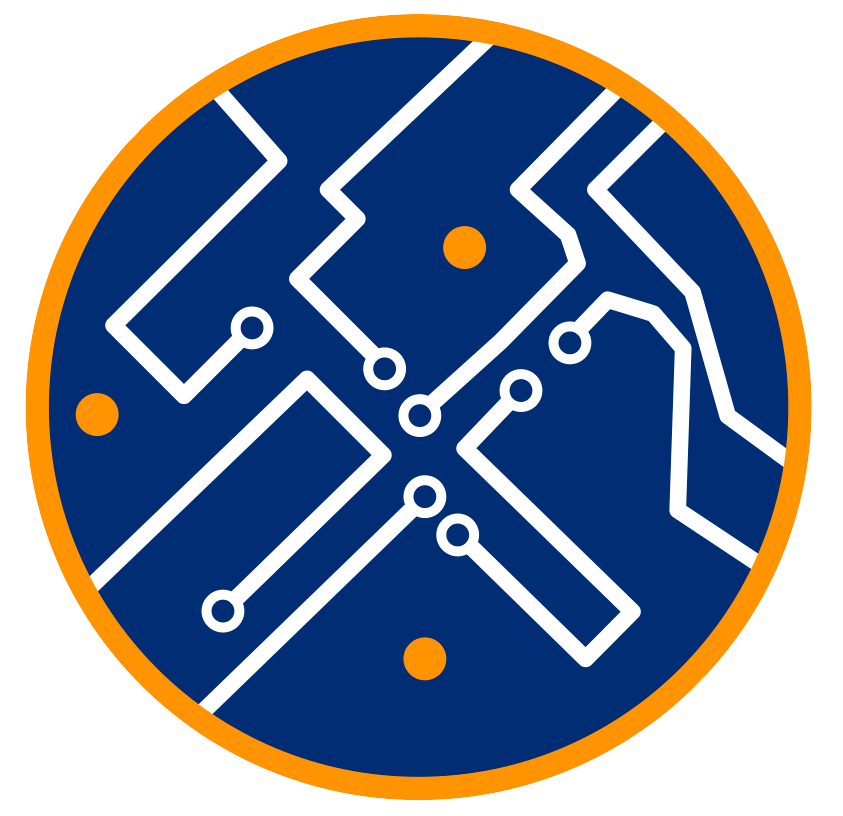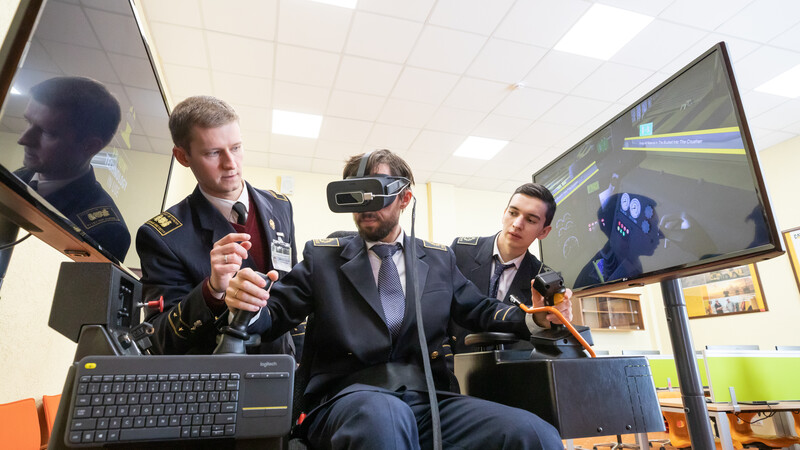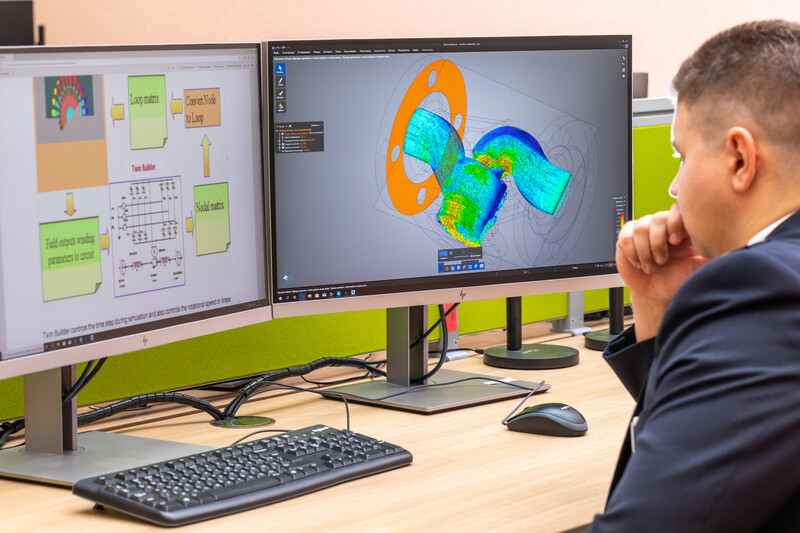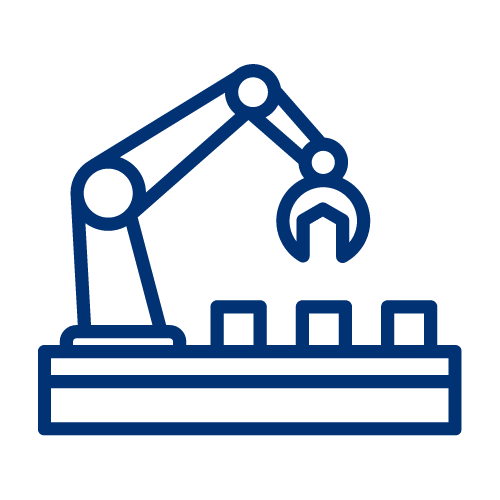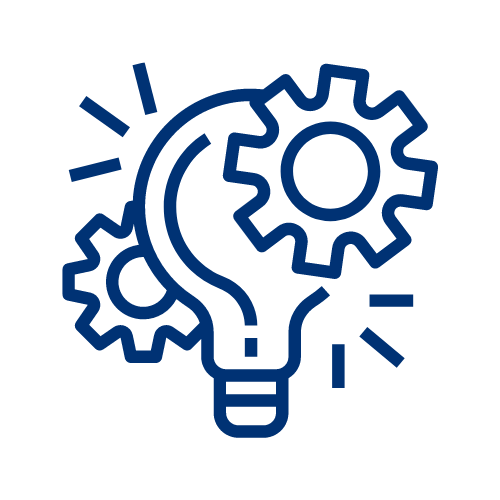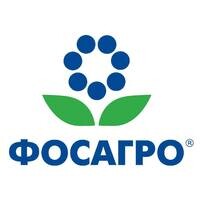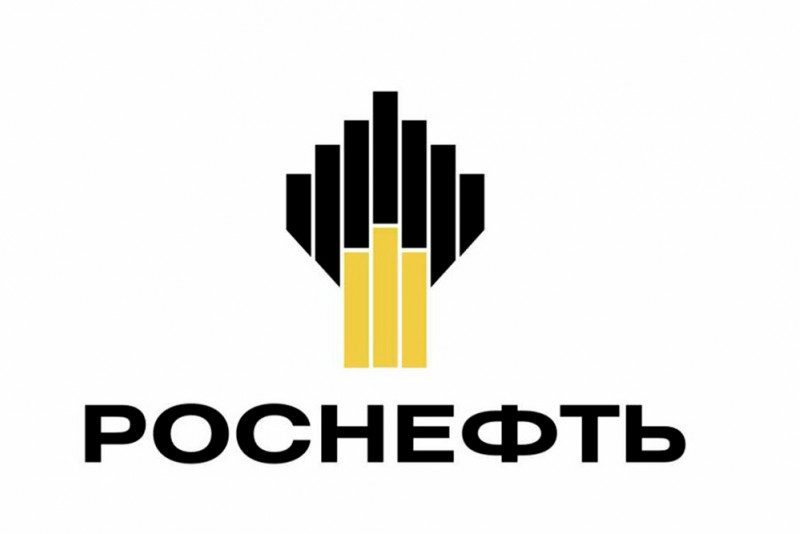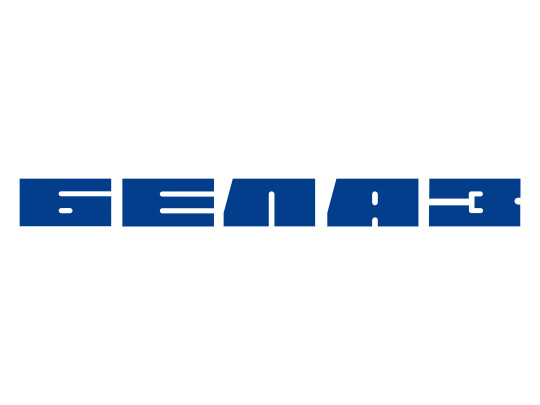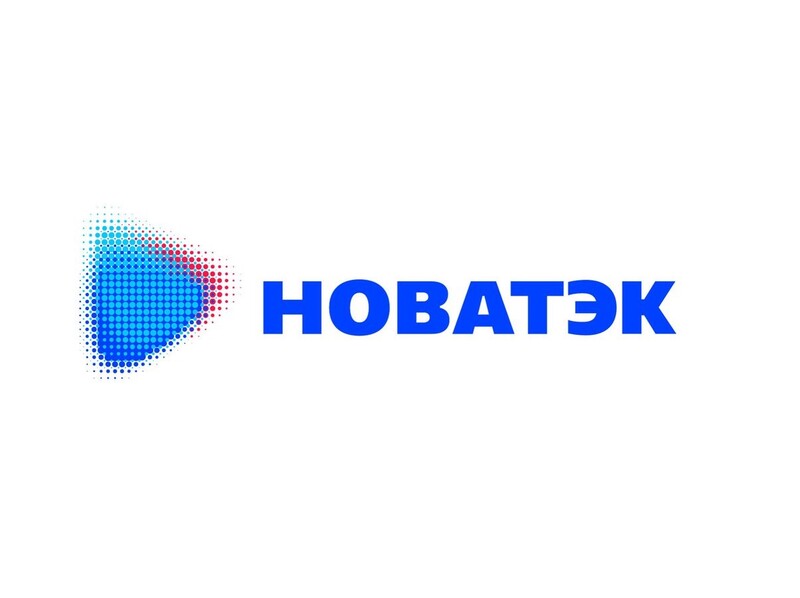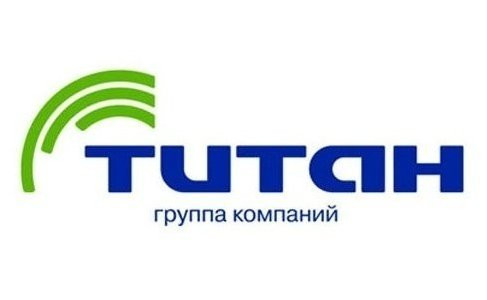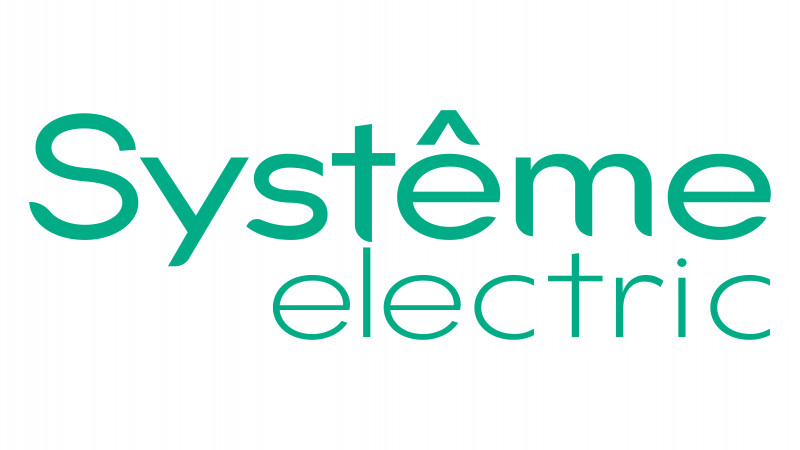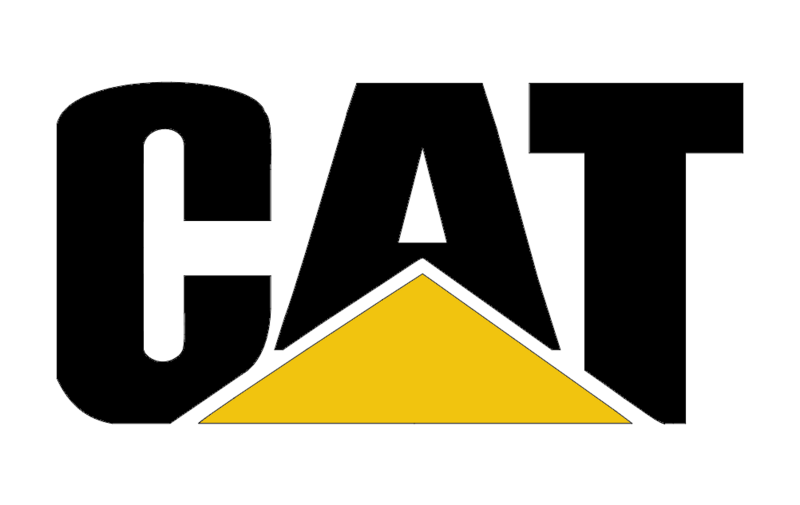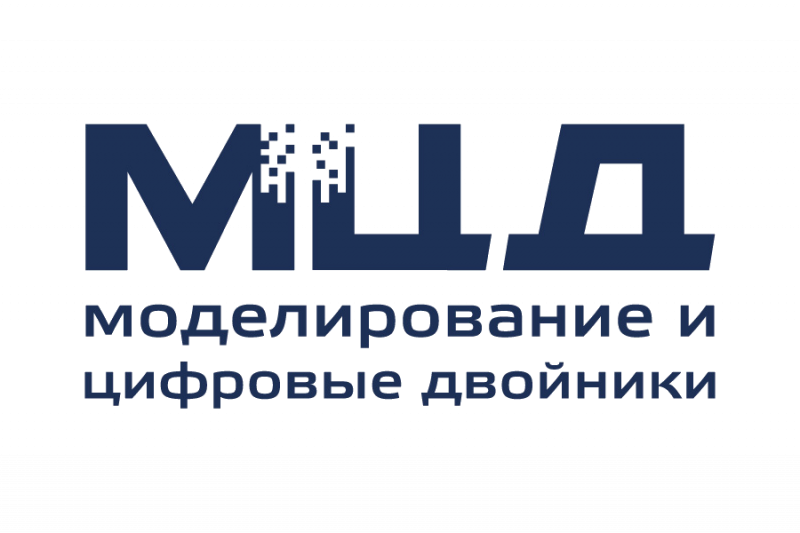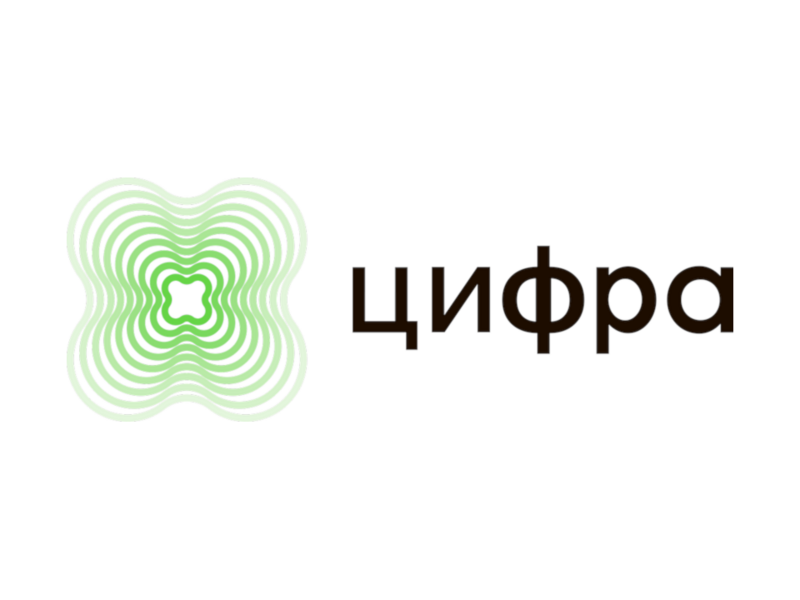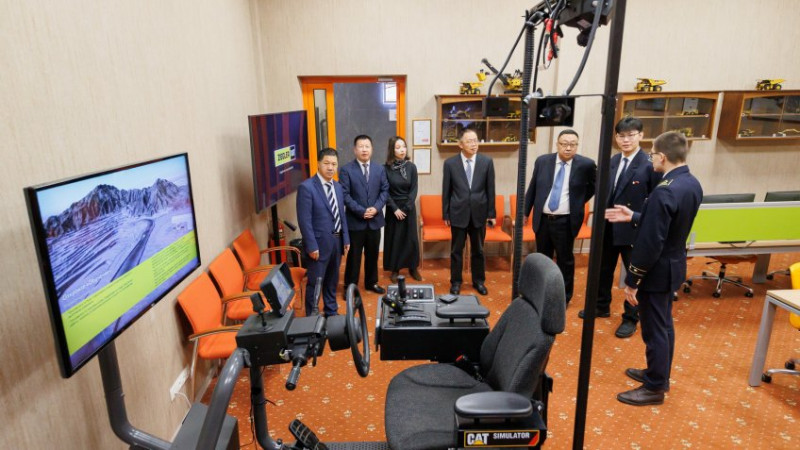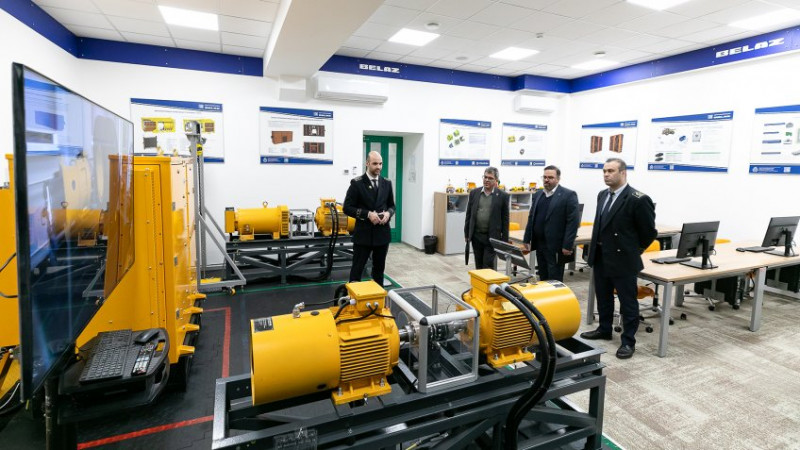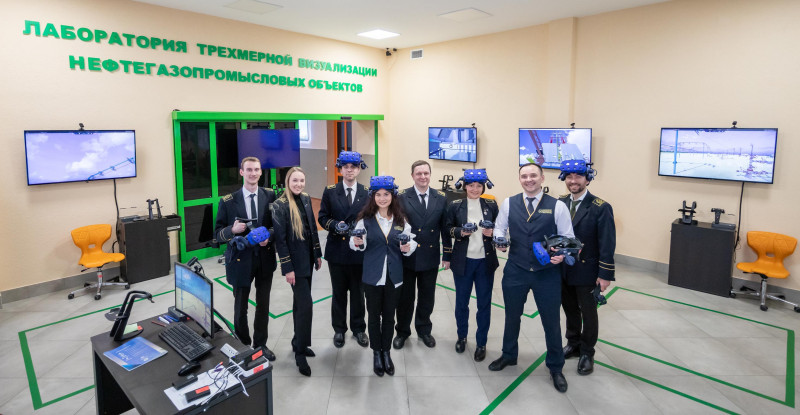
Cкорость научно-технологического прогресса и исчезновение определенных видов деятельности, связанное с проникновением автоматизации во все сферы производственных и управленческих процессов, являются факторами возможного роста для предприятий будущего. Цифровая интеграция, объединяющая научные направления, кадры, процессы, пользователей и данные, будет создавать условия для научно-технических достижений и прорывов, обеспечивая научно-экономические сдвиги в смежных отраслях и, прежде всего, на глобальном минерально-сырьевом рынке. В этой связи с целью обучения, исследований и разработок в области цифровых технологий для предприятий минерально-сырьевого и топливно-энергетического комплексов в Горном университете реализуется деятельность Кафедры прикладных компетенций в области цифровых технологий.
Подробнее о задачах

Направления научных исследований
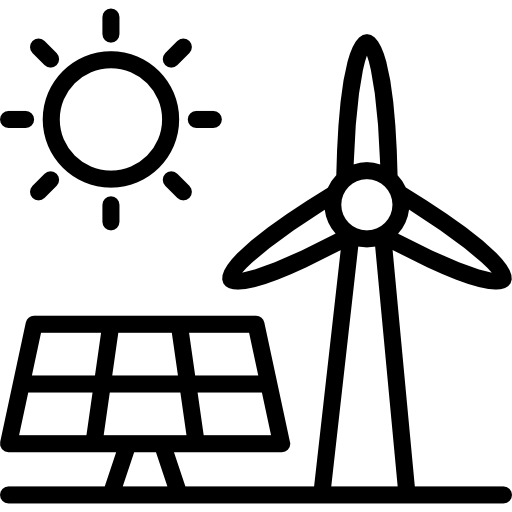
Исследование эффективного развития и функционирования энергетических систем на новой технологической основе, принципах энергосбережения, современной электротехнике, ВИЭ

Теория и методология информационного обеспечения объектов недропользования

Создание системы непрерывного обучения и повышения квалификации, направленной на формирование профессиональных цифровых компетенций специалистов, необходимых для обеспечения инновационного развития ТЭК и МСК

Энергосбережение и повышение энергетической эффективности

Переход к передовым цифровым, интеллектуальным производственным технологиям, роботизированным системам на предприятиях МСК и ТЭК
Данное направление предполагает рассмотрение интеллектуальных технологий управления электроэнергетическими системами, включая передачу электрической энергии, управление спросом на электрическую энергию, цифровые двойники объектов электроэнергетики, цифровые информационные модели электротехнических систем.
Читать далее
Лаборатория
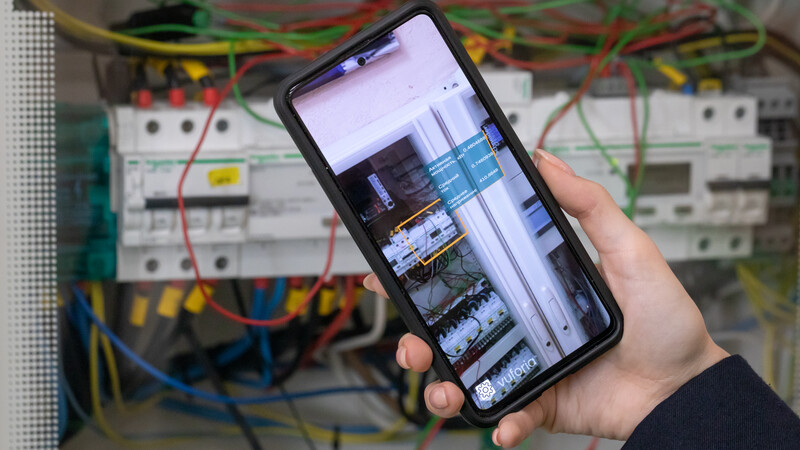

В рамках данного направления ведется разработка новых методов мониторинга и управления на основе цифровых и информационных технологий, создание информационных систем для решения задач горной отрасли.
Читать далее
Лаборатория
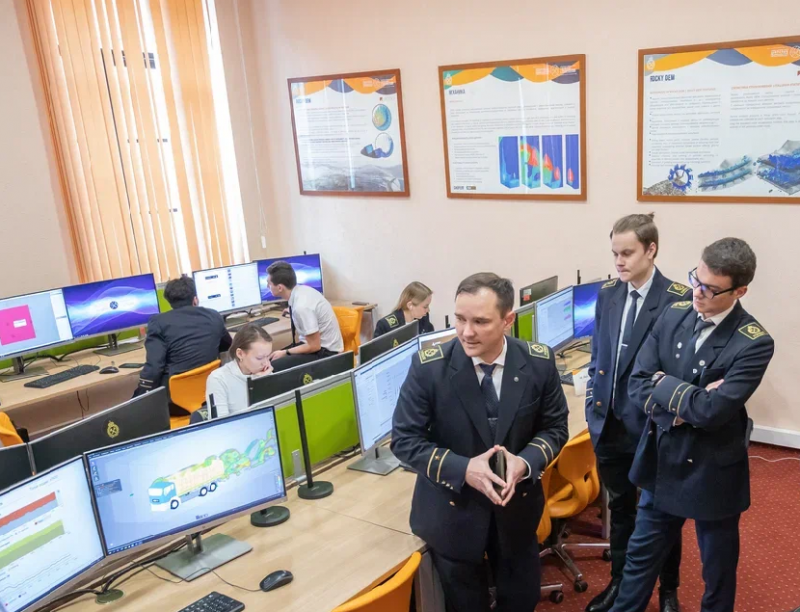

Данное направление нацелено на развитие и популяризацию инженерного образования, повышение цифровых компетенций сотрудников и обучающихся, а также реализацию программ дополнительного профессионального образования для представителей компаний ТЭК и МСК.
Читать далее
Лаборатория
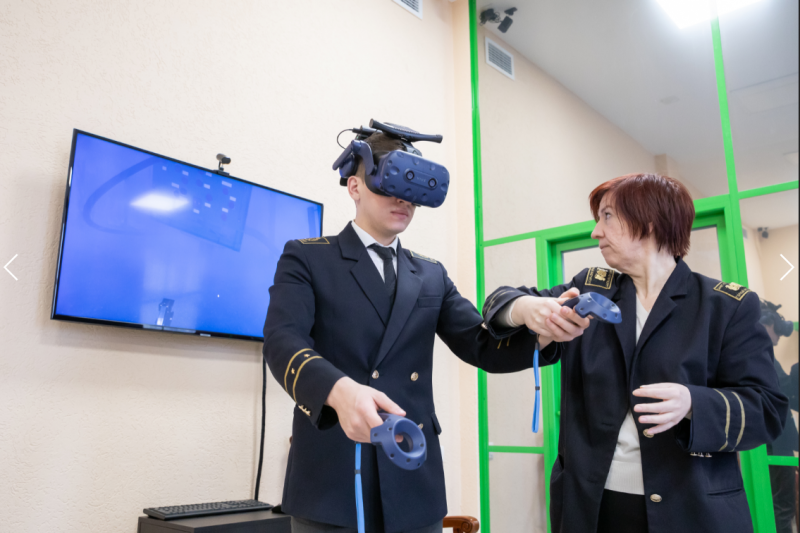

Данное направление предполагает исследование и обоснование комплексных показателей эффективности генерации, транспорта и потребления энергии при снабжении от традиционных и возобновляемых источников энергии с учетом влияния глобальных вызовов и вариации внешних факторов.
Читать далее
Лаборатория
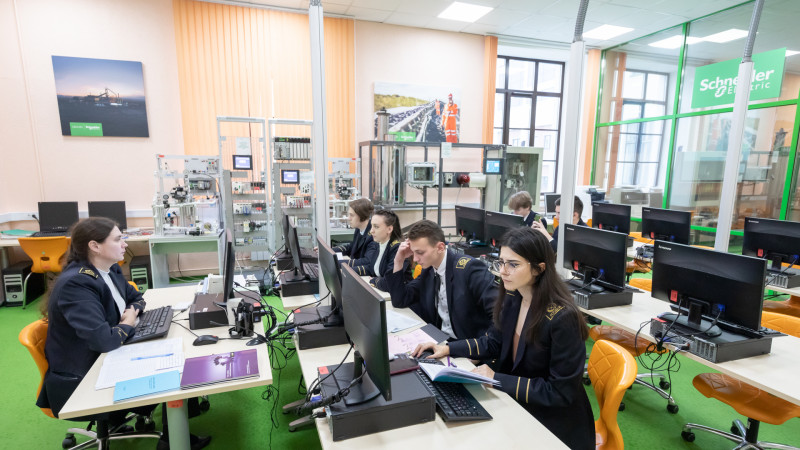

В рамках данного направления проводятся исследования, направленные на повышение эффективности оборудования и технологических процессов добычи, переработки и транспортировки полезных ископаемых.
Читать далее
Лаборатория
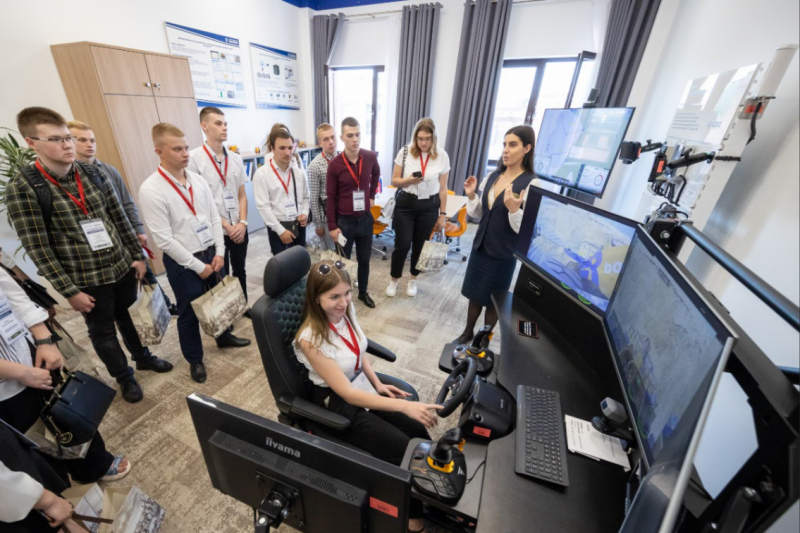

Проекты
Научные публикации
The control method concept of the bulk material behavior in the pelletizing drum for improving the results of DEM-modeling
Ключевые слова:A probe | Cast iron production | DEM-modeling | Digital twin | Drum pelletizers | Pelletizing automation | Track recovery | Wear pattern | Wear rate
Дата публикации: 2019-01-01
Журнал: CIS Iron and Steel Review
Авторы: Boikov, A.V, Savelev, R.V, Payor, V.A, Erokhina, O.O.
ISSN:24141089
Q1
(Scimago)
One of the problems of the use of drum pelletizers in metallurgy is the lining wear, as well as the economic costs associated with it, including increased energy costs during operation and the need to periodically stop the units and then replace the lining. Most significantly the trajectory of particle motion affects the lining wear profile and wear intensity. It is assumed that during the implementation of the technological process, a monodisperse occurs, which has the greatest effect on the wear profile. In addition, the lining wear is influenced by the impact of particles at an acute angle, with a maximum impact caused by a collision at an angle of 39°18′. At present there are no universal solutions for determining the degree of lining wear in real time with a corresponding adjustment of the pelletizing process parameters. Creating a system for monitoring the lining wear is necessary for timely repair and maintenance of equipment to prevent an emergency situation, as well as increase the service life of the aggregates. This article proposes a concept of a method that allows to evaluate the trajectory of the charge during the technological process according to the coordinates of the movement and acceleration of the probe in the unit during the implementation of the technological process. The digitization and analysis of data obtained from the probe will allow to assess the integrity of the lining surface, the degree of lining wear and places with increased wear rate in real time with the possibility of adjusting technological processes to increase the lining service life. The obtained data will allow to clarify the computer model of the process by assessing the behavior of the charge in the unit and create a reserve for the further implementation of digital twin equipment.

Technical vision system for analysing the mechanical characteristics of bulk materials
Дата публикации: 2018-01-30
Журнал: Journal of Physics: Conference Series
Авторы: Boikov, A.V, Payor, V.A, Savelev, R.V.
ISSN:17426596
In this article actual topics concerned with mechanical properties of bulk materials, usage of computer vision and artificial neural networks in this research are discussed. The main principles of the system for analysis of bulk materials mechanical characteristics are described. Bulk material outflow behaviour with predefined parameters (particles shapes and radius, coefficients of friction, etc.) was modelled. The outflow was modelled from the calibrated conical funnel. Obtained dependencies between mechanical characteristics and pile geometrical properties are represented as diagrams and graphs.

The influence of technological changes in energy efficiency on the infrastructure deterioration in the energy sector
Ключевые слова:Digital technologies | Global challenges | Infrastructure deterioration | Sustainable development | Sustainable energy | Technological changes
Дата публикации: 2021-11-01
Журнал: Energy Reports
Авторы: Shabalov, M.Y, Zhukovskiy, Y.L, Buldysko, A.D, Gil, B, Starshaia, V.V.
ISSN:23524847
Q1
(Scimago)
The energy and its entire related infrastructure are the main drivers for a economic development and for ensuring a good level of employment. As part of a global study about international energy sector, we evaluate here the impact of technological changes on the state of the energy infrastructure. This study includes a detailed analysis of the global challenges facing the energy industry. We propose scenarios for the development of a modernized energy infrastructure with an assessment of the entire energy system. Our evaluation indicators are chosen in terms of the reliability of the energy infrastructure, of its quality, of the accidents that may happen and of the consequent environmental risks. This study is particularly adapted for forecasting the necessary measures (of technical nature, of governance kind) that have to be implemented to reduce the acceleration of the infrastructure deterioration rate. Our results reveal that the use of digital and information technologies has many positive impacts on the development and on the control of an efficient consumption of energy. In addition, our predictions, due to the further modernization of the energy sector, can contribute and help in the creation of preconditions that will be highly stimulating and profitable to the growth of investments in the energy infrastructure.
Отзывы партнёров
"Together with the Educational Center of Digital Technologies at St. Petersburg Mining University, we have been collaborating for several years to shape fundamental and applied challenges and ideas for the digitalisation of the mining industry."
"We are very glad to be part of the process that the Educational Center of Digital Technologies at St. Petersburg Mining University is engaged in. We are confident that this centre can become an assembly point for all those new solutions that will bring the mining industry to a new level."
The Committee for the Fuel and Energy Complex of the Leningrad Region expresses its gratitude to you for your support in holding the Festival and organising an informative exposition of the enterprise aimed at attracting the young generation to the fuel and energy complex profession.
Thanks to your efforts, we will be able to further educate young people full of strength and aspirations for knowledge and creativity in the field of energy saving.
We hope for further fruitful co-operation in the field of energy saving.
Thanks to your efforts, we will be able to further educate young people full of strength and aspirations for knowledge and creativity in the field of energy saving.
We hope for further fruitful co-operation in the field of energy saving.
On behalf of the Ministry of Energy of Russia, we would like to express our gratitude to the WeWatt team of young researchers for the great and necessary work for the industry, done under your leadership on a proactive and pro bono basis.
The results of this study will serve as a basis for further work in this area and will be useful to coal companies in carrying out digital transformation of production facilities, contributing to the effective and successful achievement of the goal.
The results of this study will serve as a basis for further work in this area and will be useful to coal companies in carrying out digital transformation of production facilities, contributing to the effective and successful achievement of the goal.
Institute for Problems of Integrated Subsoil Development, Dmitry Klebanov
Leonid Zhukov, Director of SITECH Division of Zeppelin Rusland Ltd.
Committee for Fuel and Energy Complex, Chairman of the Committee Y.V. Andreev
Ministry of Energy of the Russian Federation
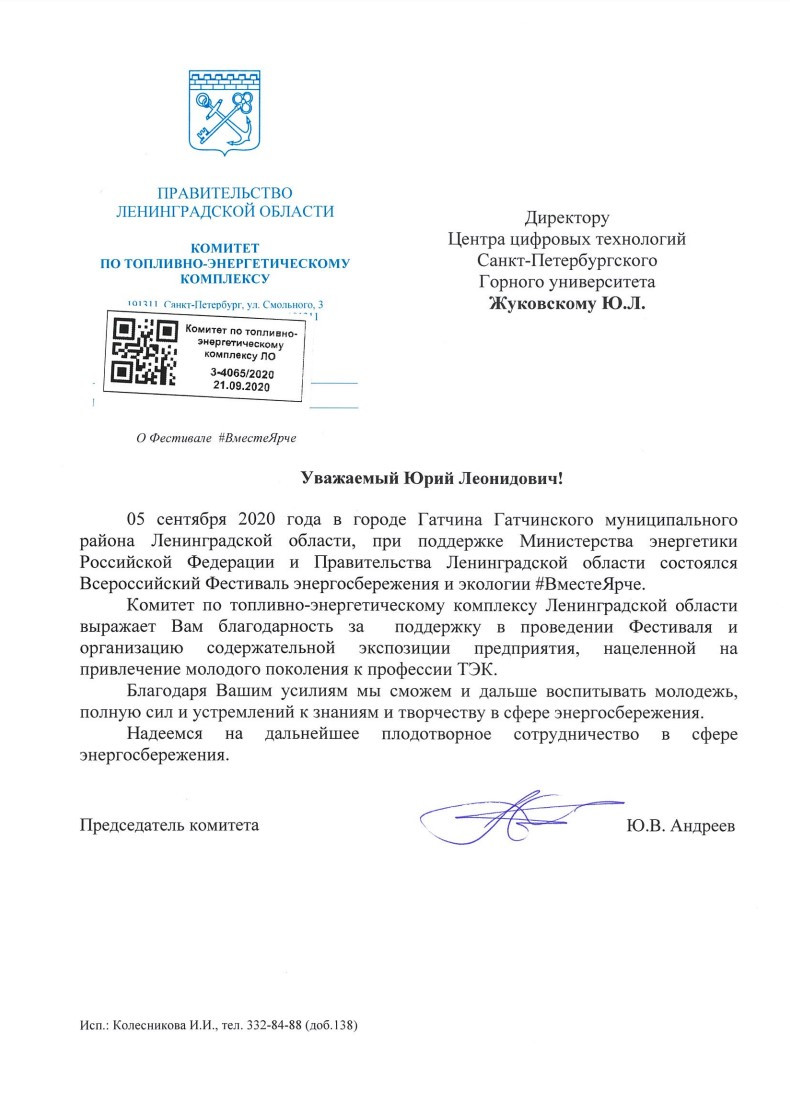
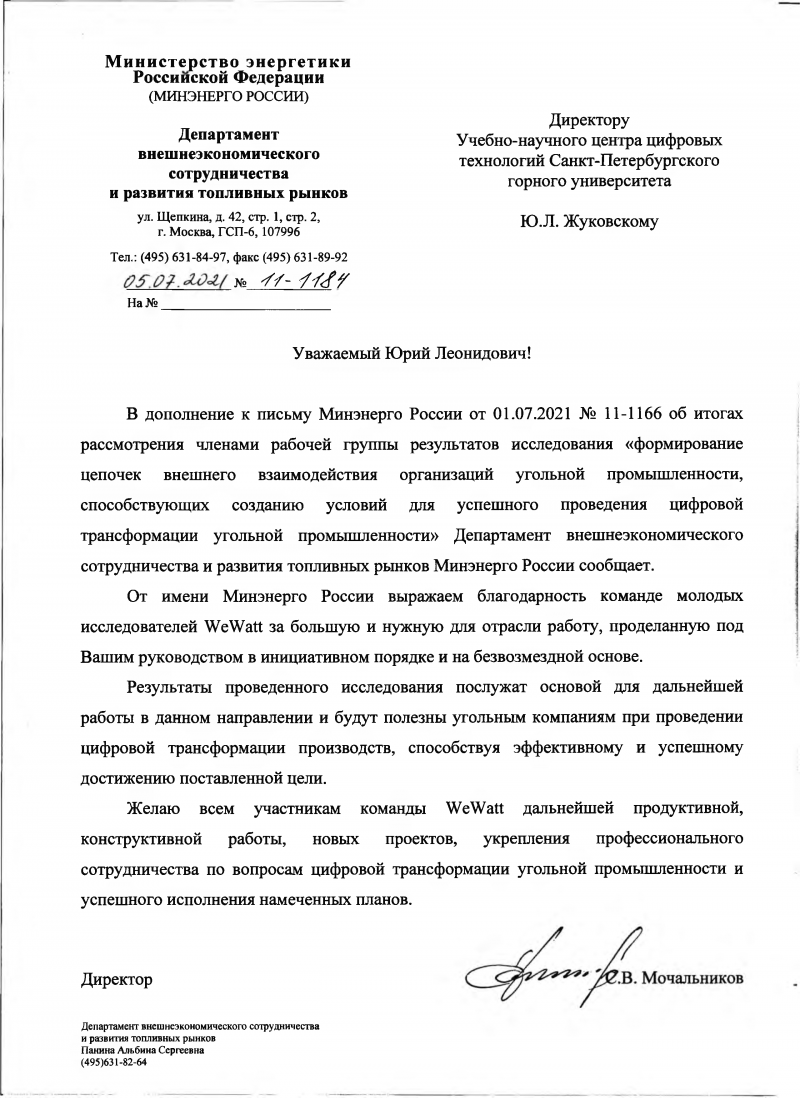

Кафедра в лицах
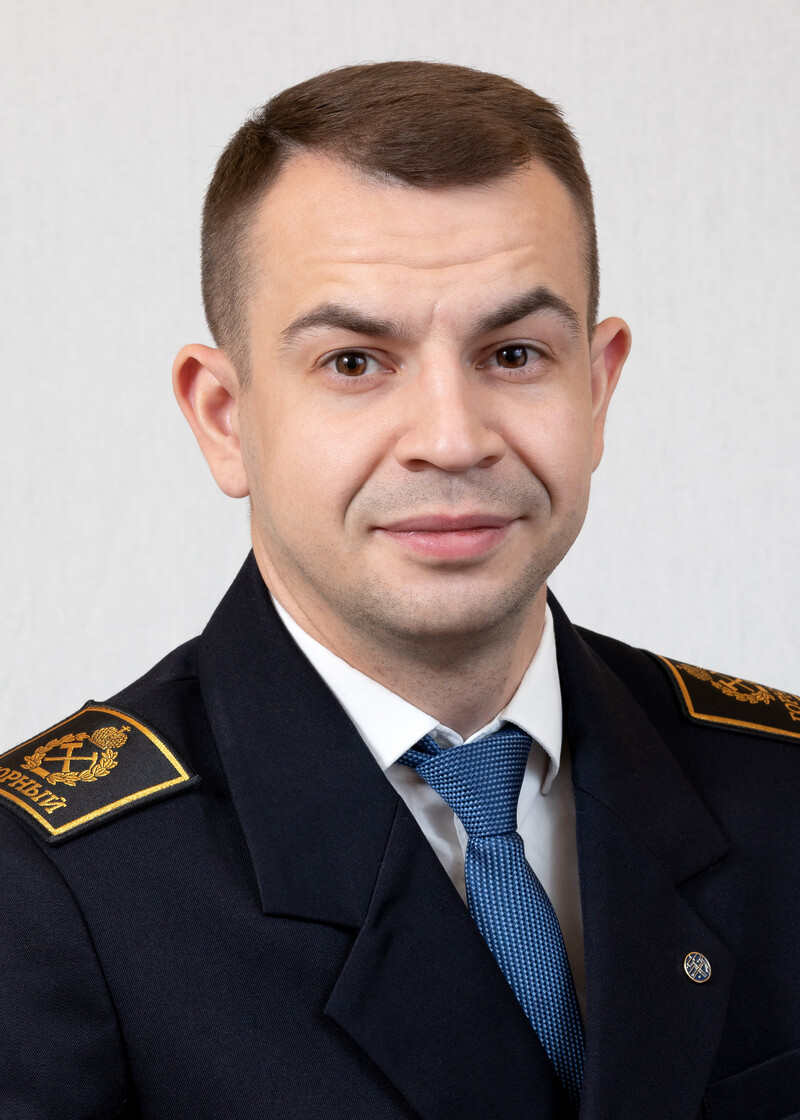
Королёв Николай Александрович
доцент, руководитель направления энергетических и электромеханических систем
к.т.н.
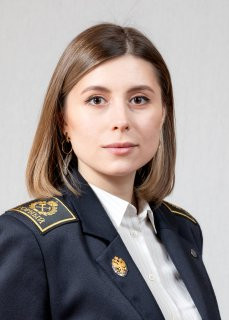
Булдыско Александра Дмитриевна
ассистент
к.т.н.
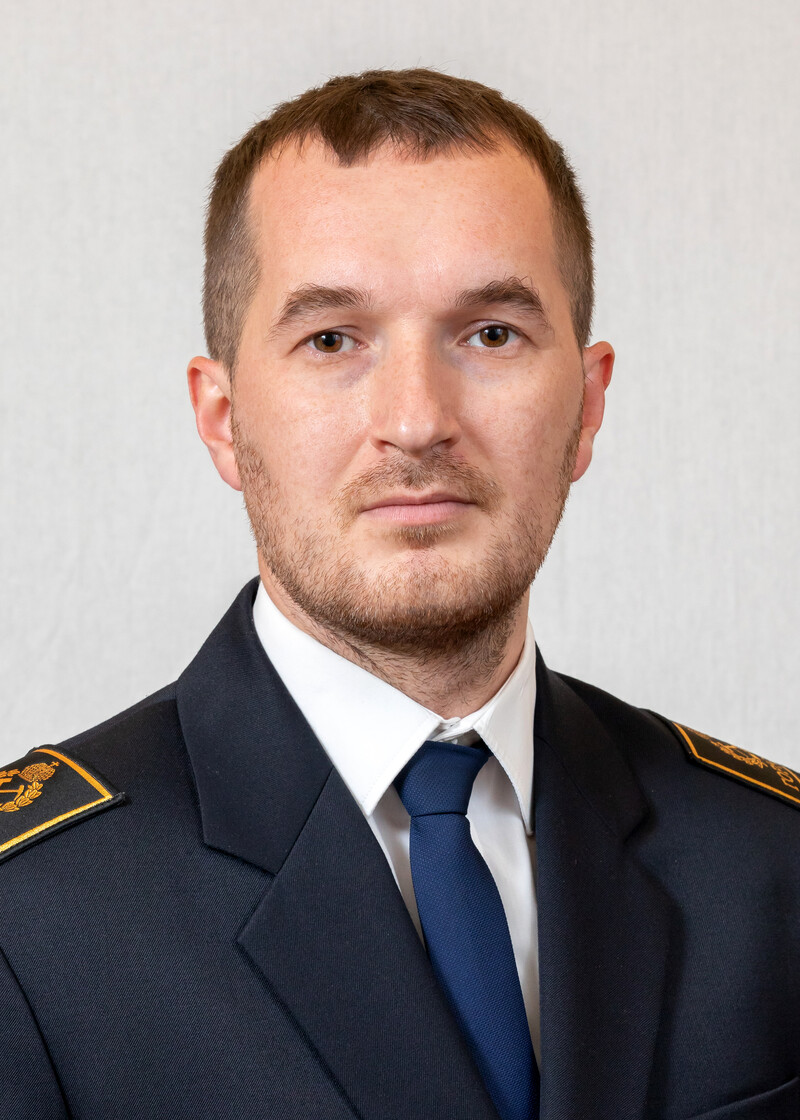
Чупин Станислав Александрович
доцент, руководитель направления компьютерного моделирования
к.т.н.
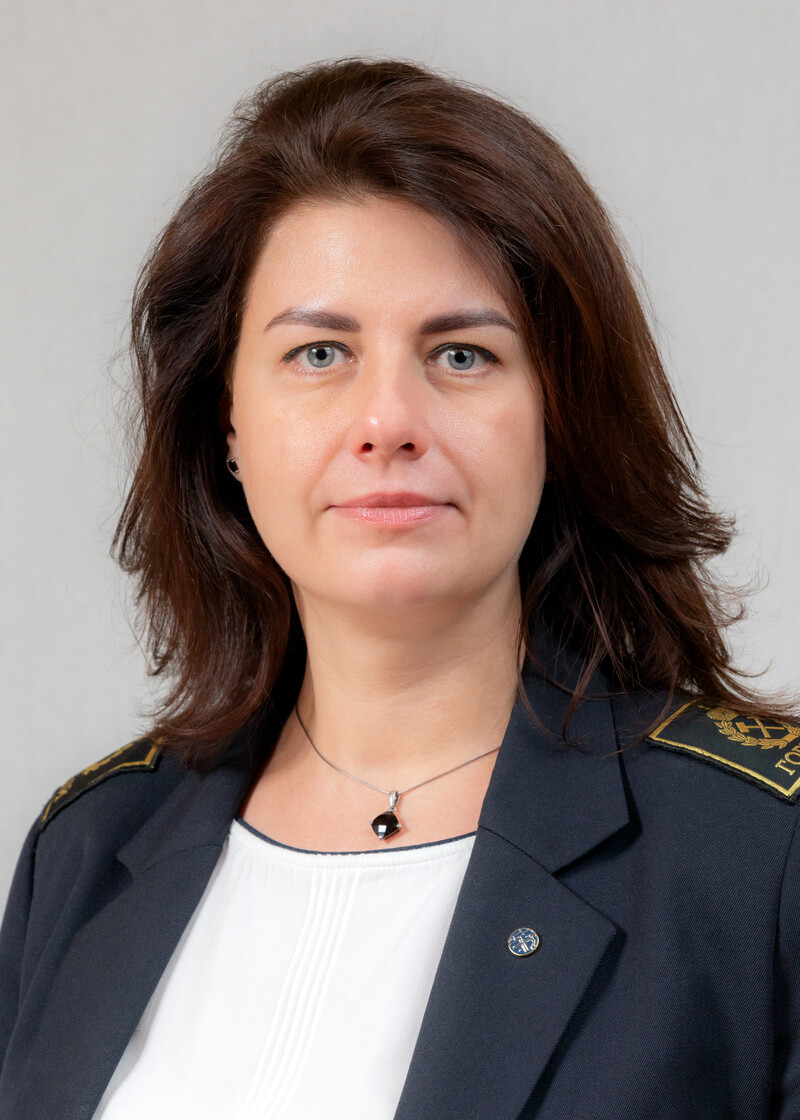
Николайчук Любовь Анатольевна
Заведующая кафедрой прикладных компетенций в области цифровых технологий
к.э.н. / доцент
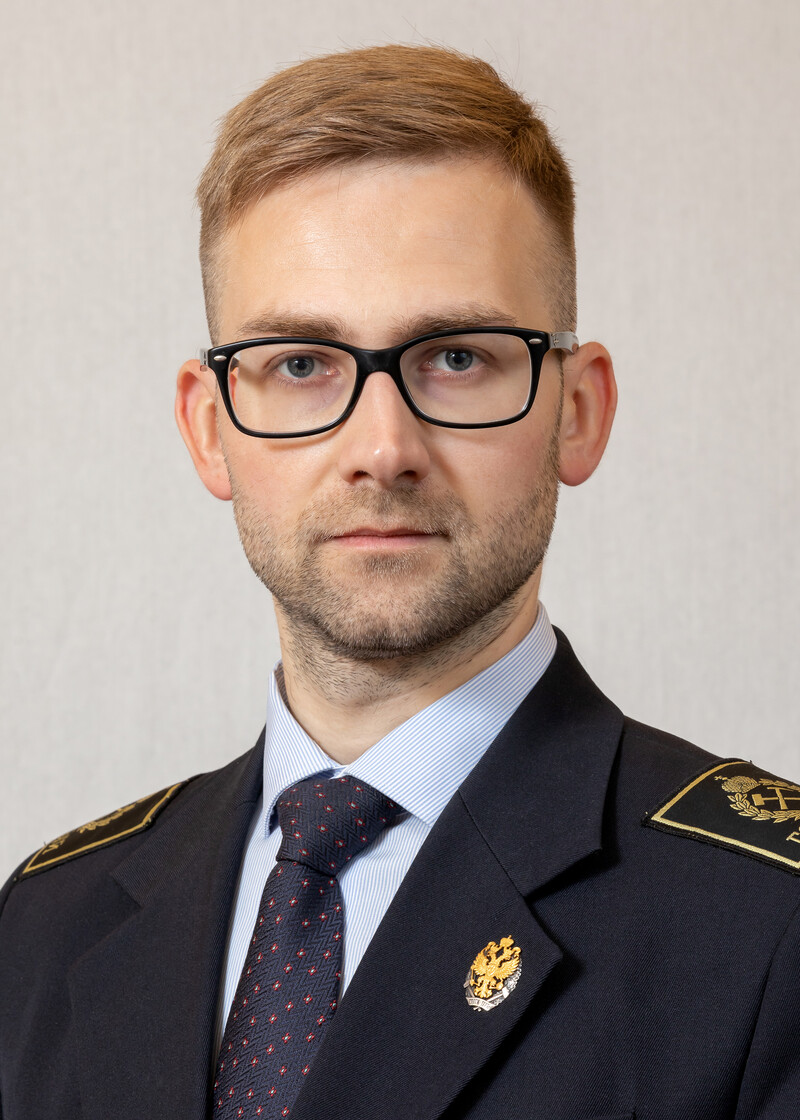
Сержан Сергей Леонидович
доцент, руководитель направления горно-транспортных систем
к.т.н.
Обратная связь

